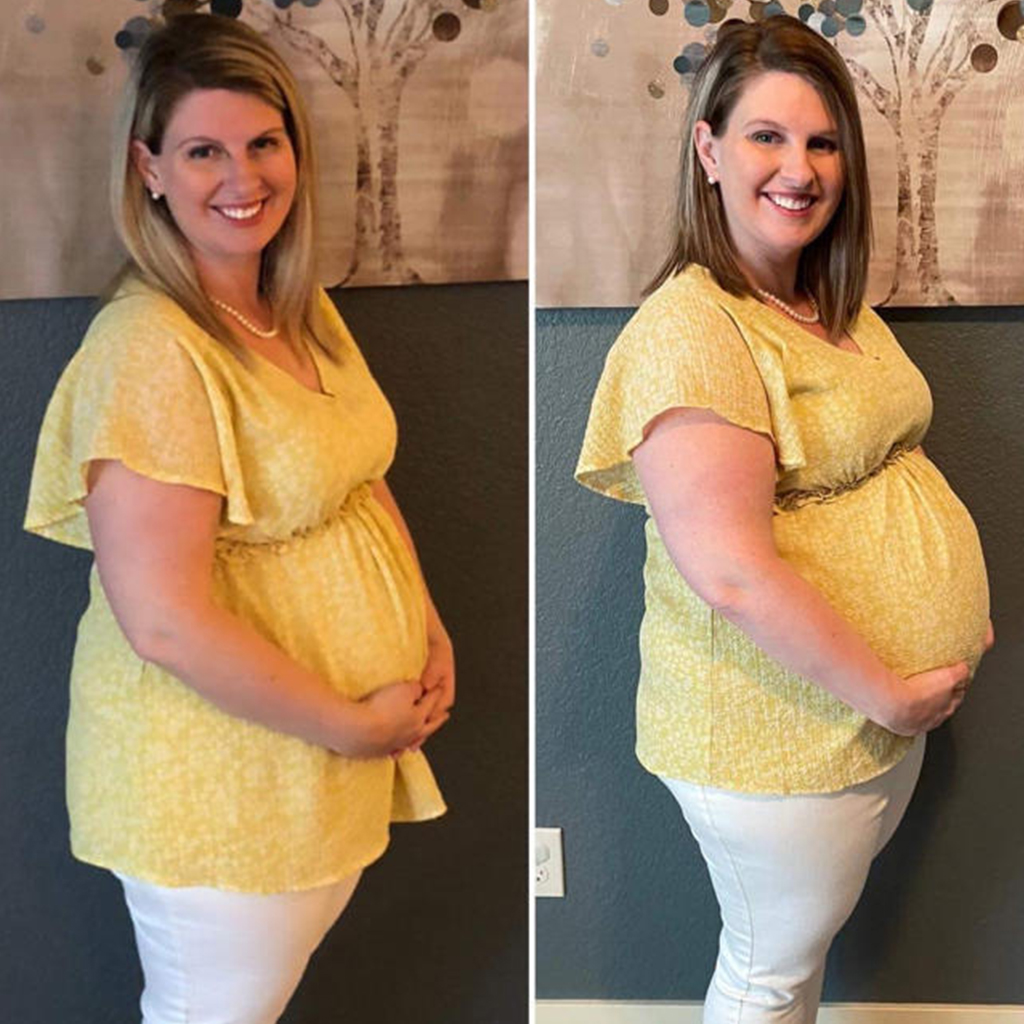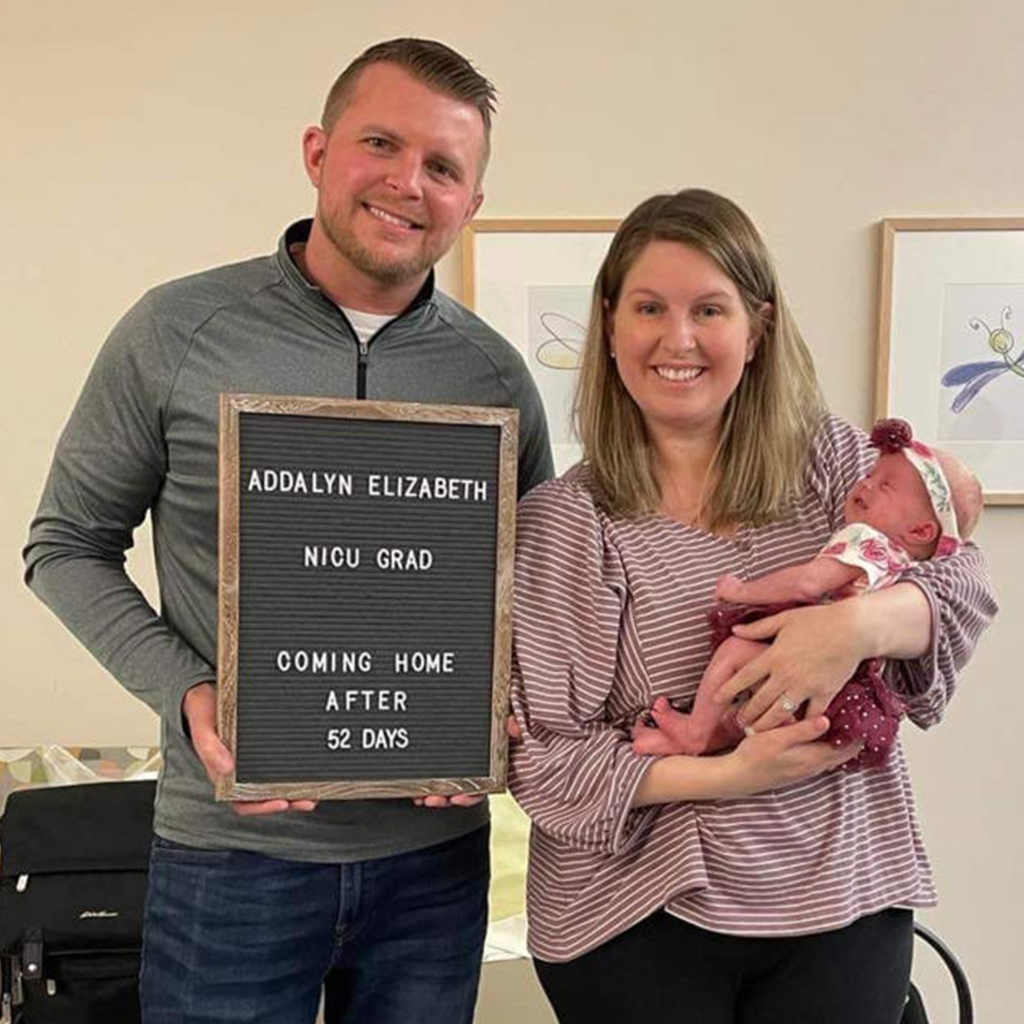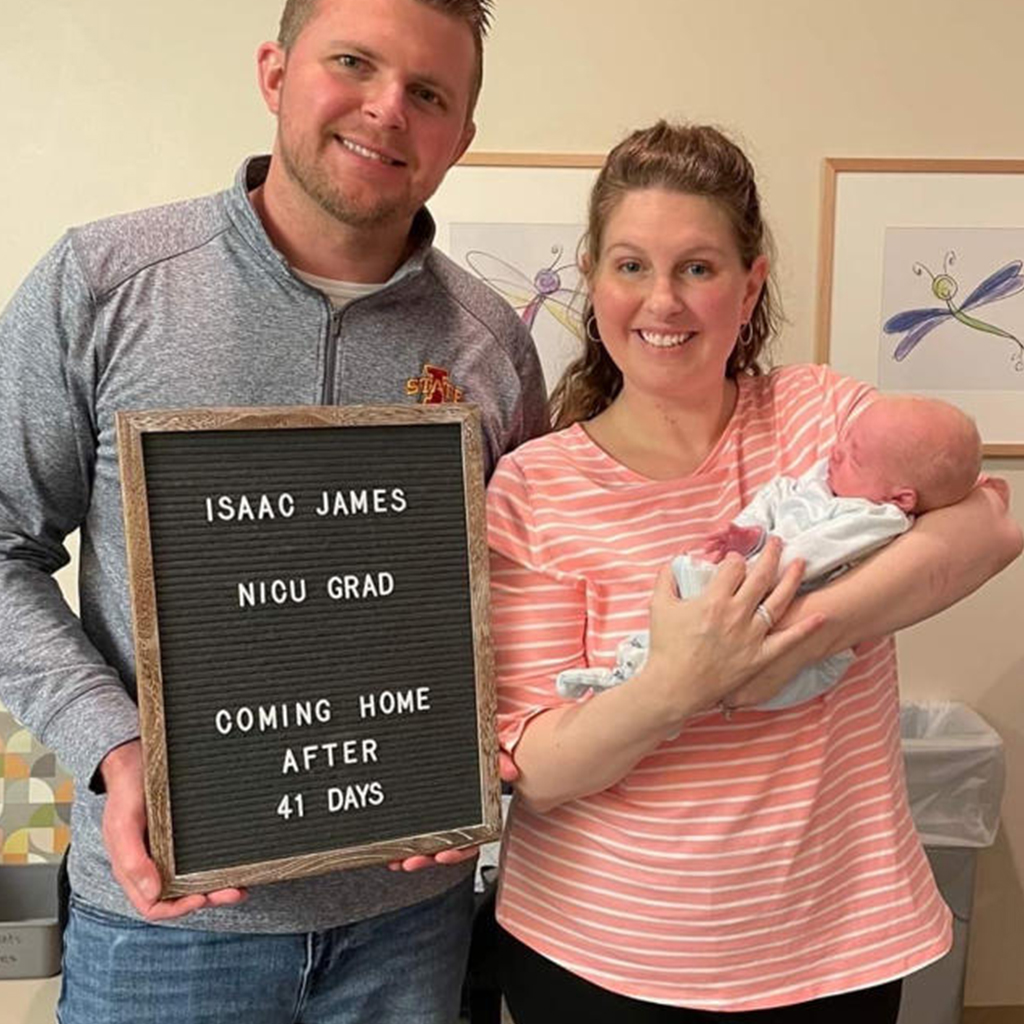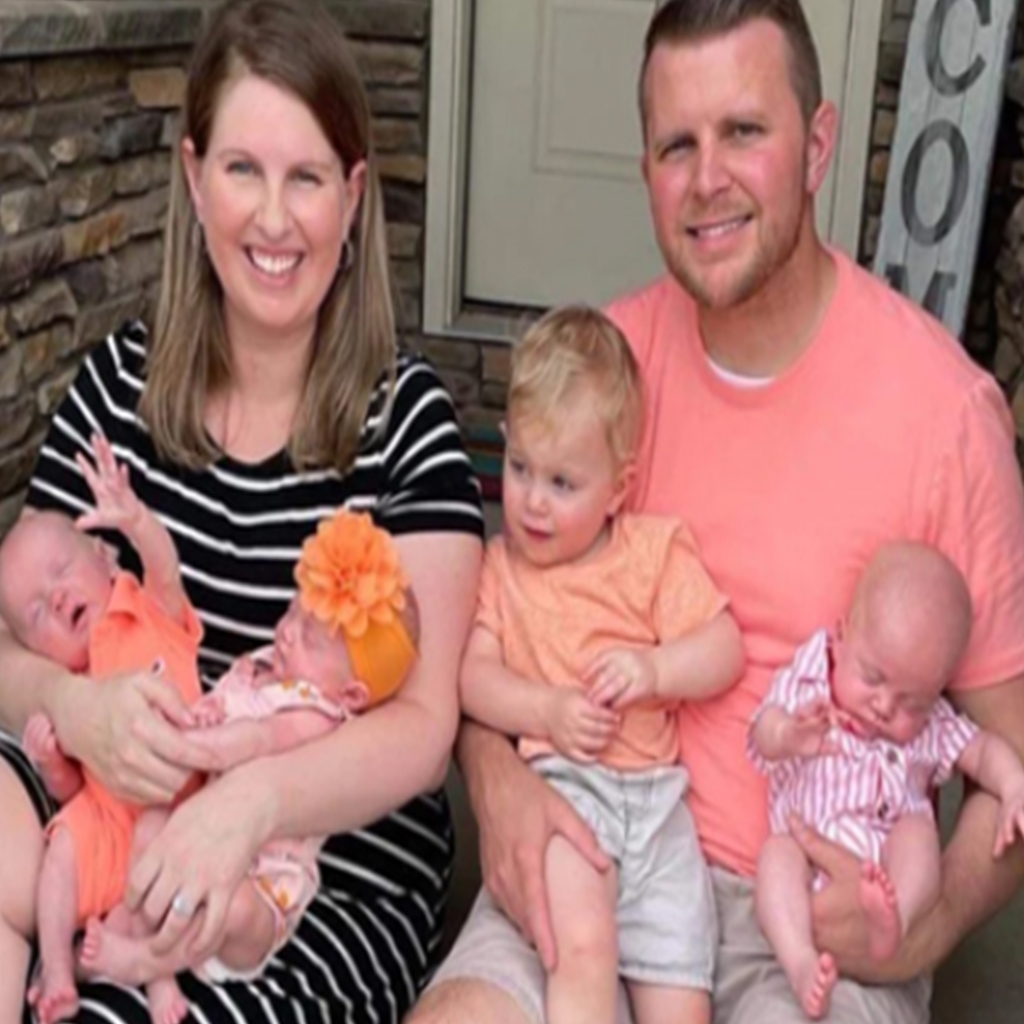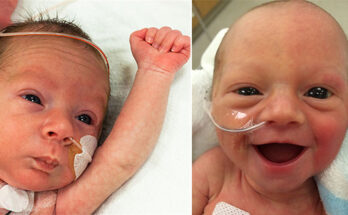Kellee Briggs learned she was expecting a child. Her initial ultrasound revealed that she was carrying triplets but no sign of twin pregnancy. On September 24, 2020, she gave birth to son Chase successfully. Then, 10 months later, she discovered she was expecting once more. She gave birth to triplets in March of this year, along with two boys and a girl. The 10-week scan during that first pregnancy came as a surprise.
Despite never having been pregnant before, something was awry from the look on my face. Recalls Kellee Briggs. Finally, technology has shown Briggs to be carrying triplets because she has three amniotic sacs. But there was only one kid left. The couple was taken aback by their pregnancy with triplets as they struggled with their loss. Briggs does not take any reproductive hormones, and none of them have a family history of polymorphism. The second pregnancy was unexpected, despite the fact that the couple had always hoped to have two kids. Briggs believed that she was this time carrying twins. The couple claims that the technician appeared anxious as she informed them that they would be having triplets.
“We just knew instantly, and we laughed. Oh my my, I can’t believe this is happening, was the reaction. said Kellee.
The earliest she could give birth was at 24 weeks, and the infants had a 50% chance of surviving, according to the doctors. Even if the odds are in her favor, they still hope she survives at least 32 weeks. Dr. Christine Greves, who did not treat Kellee, stated that only one in every 9,000 babies are born with triplets. One in every 250 pregnancies has a chance of producing twins. Even more uncommon, with an estimated one in 64 million chance, are two sets of triplets. One of the many variables that can influence a person’s risk of multifocal illness is their age. Kellee Briggs was 32 weeks pregnant when she was ready to give birth. Her and the children’s health is deteriorating. The babies’ umbilical cord blood pressure was elevated so they performed C-section.
Briggs House is pleased to welcome Addalyn (3 pounds. 7 oz. ), Isaac (3 lbs. 12 oz.), and Aiden (3 lbs. 15 oz.). Kellee experienced Bell’s palsy after returning home, a condition that affects many people including mothers. She bounced back. The infants are already at home after spending 30 to 55 days in the neonatal intensive care unit. They return home in the order they were born, according to Kellee Briggs. The parents of a family of four make an effort to follow a feeding plan, but they quickly discover that they need prepare for the unexpected.

